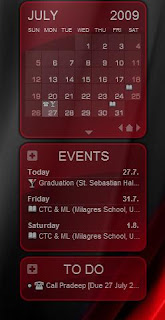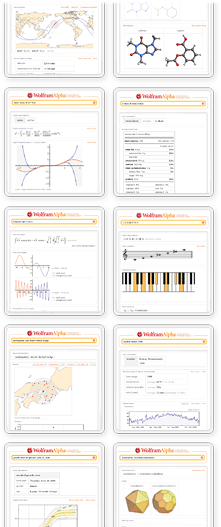Ever since
Google was launched, web thinks mostly about the best way to organize and retrieve information. Reading the mind of the one who engages in search and presenting him the information that he is looking for as quickly as possible was the goal so far. Now, I think, Search Engine Gurus are thinking about how to give information in a more systematic manner. So far, Google does it almost perfectly well. Sometimes, I feel, Google knows what I am searching for and gives me information as systematically as possible, within their structural limitations.
What do I mean by structural limitations? Google Search is all about giving you a list of sites relevant to your search. You got to click on the links on the search page and go to the site. Sometimes, it is very difficult to find the information on the page, even though Google told you it is there and you are sure it is there. However, these days Google gives you this information in a more structured and organized manner. For example, if you are looking for the meaning of a word, usually the first result on the Search Page would be the exact meaning of the word. You don't have to go and look up the information on another page. But, still Google is Google and a list of websites relevant to your search!!
I always used to wonder when Google will evolve into a site that will help me retrieve information the way
Wolfram|Alpha is now promising to deliver. Enter any date! Enter any city! Enter any two stocks! Enter any two first names! Wolfram|Alpha tells you! And the guys claim that you are going to get the information in a very structured manner. And they deliver to some extend.
Excited about this whole idea of structured information, I straight away went and searched for 'Mangalore', the city where I live. Wolfram|Alpha gave me most of the things I would want to know about Mangalore. It tells me that the city is called Mangaluru. It tells me, the city is in Karnataka. It shows me a map and tells me where exactly the city is. It also gave me the local time, date and the weather. It told me that 417387 people live there. What more do you want to know about Mangalore? If you are not satisfied with the information you got, Wolfram|Alpha gives you a link to
Wikipedia where it is written about Mangalore.
I also wanted to see what information it could give me on August 15, 1947. [Now, for those of you who have no clue why I bother about August 15, let me tell you - India got independence on that day!] Wolfram|Alpha tells me August 15, 1947 was a Friday. It was exactly 61 years, 10 months and 29 days from today. It also gives you an option to search it out on the web. I clicked the link that would take me to more information on August 15. Great! Do you know where it took me to? It took me straight to Google. Yes, Google!
Now, what does that tell us? Does it tell us that WolframAlpha is not competing with Google?
Wikipedia calls Wolfram|Alpha an
Answer Engine and not a
Search Engine. "It is an on-line service that answers factual queries directly by computing the answer from structured data, rather than providing a list of documents or web pages that might contain the answer as a search engine might."
Stephen Wolfram released it to
public on May 15, 2009. Wolfram|Alpha calls themselves 'computational knowledge engine'. Knowledge Engine or Answer Engine, do they mean they are one step ahead of Google? I think they are not. First of all, I don't think they gather knowledge like Google does. They are giving you information from their knowledge data base mostly. And the fact that Wolfram|Alpha links Google to its site and uses it to gather additional information on a query tells me that it is more about on-line cooperation than competition.
I think Wolfram|Alpha has a long way to go! Currently, in a Wikipedia Style, they are encouraging people to become
Volunteer Curators for the site and help them check available data and add data and enable an understanding of new ways in which people seek knowledge. There are many queries to which Wolfram|Alpha says: "Wolfram|Alpha is not sure what to do with your input." But this doesn't disappoint me and I perfectly understand the situation. Wolfram|Alpha is yet to perfect ways in which it gathers and presents information. So far, it does a good job with what it has. And I know, it is going to be better as they progress and people join hands with Wolfram|Alpha as Volunteer Curators.






















